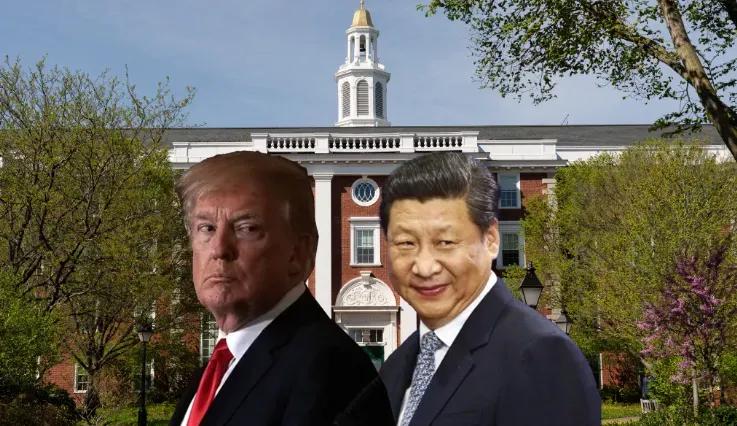Harvard Under Fire: From Symbol of Excellence to Political Target
For decades, Harvard was synonymous with excellence. Founded in 1636, it educated eight U.S. presidents and dozens of Nobel laureates. However, recently, Trump referred to it as “a joke.” In a message posted in April on his social media platform Truth Social, the president accused the university of teaching “hate and stupidity” and being controlled by “radical left idiots.” His conclusion: Harvard should no longer receive federal funding.
Far from being an isolated measure, Trump's attack reflects a broader political strategy: to question the academic and cultural elites that, according to the narrative, have betrayed the foundational values of the United States. Government agencies acted immediately by freezing $2.2 billion that was earmarked for the university. In May, another government agency informed Harvard authorities that an additional $450 million in funds would also be cut.
This week, Trump took the conflict even further. Secretary of Homeland Security, Kristi Noem, sent a letter revoking the university's license to enroll foreign students. If Harvard wanted to regain it, it would have to submit detailed information about its international students within 72 hours.
Harvard sued the state, and secured an initial legal victory the next day when federal judge Allison D. Burroughs ruled in favor of the university. The judge accepted the argument that the government’s order would cause “immediate and irreparable harm” to the institution and temporarily suspended the measure pending a later hearing.
Trump and his circle claim that, from their perspective, the teaching and research at Harvard are dominated by leftist content and ideologies, or the famous “wokeness.” In April, more than 100 U.S. universities signed an open letter in which, citing the Constitution, they denounced “an unprecedented political interference and an abuse of governmental power.”
The Role of Chinese Students in the Tension
But the problem wasn’t limited solely to the so-called “wokeness.” While Kristi Noem was sending the revocation of the university's license to enroll foreign students, she accused Harvard of “fostering violence, antisemitism, and coordinating with the Chinese Communist Party on its campus.”
In fact, for the past 20 years, Chinese students have constituted the largest group of foreign students in the United States, reaching nearly 290,000 in the 2022/23 academic year. The issue of Chinese students studying abroad has long been a point of tension in relations with the United States. During Trump’s first term, the Chinese Ministry of Education warned students about rising rejection rates and reduced visa durations in the United States.
Following this attack and in response to the Republican government, the spokesperson for the Chinese Ministry of Foreign Affairs, Mao Ning, stated that this decision negatively affects the image and credibility of the United States. "Educational cooperation between China and the United States is mutually beneficial," Mao Ning asserted, emphasizing that Beijing "strongly opposes the politicization of educational exchanges" and "rejects unfounded attacks and slander against China."
While Trump attacked international students, the Hong Kong University of Science and Technology (a city intervened by the Chinese government in 2020) launched an open invitation to international students already at Harvard, as well as those who had been admitted. The institution issued a statement announcing that it would offer unconditional admissions, streamlined entry processes, and academic support to facilitate a smooth transition.
Harvard, one of the most prestigious universities globally, hosts about 7,000 international students. If they do not transfer to another institution, these students could lose their resident status in the United States. It is estimated that nearly 20% of them are Chinese citizens.
Beijing's Bet on Human Capital
The reaction from the Hong Kong University of Science and Technology was not a mere isolated gesture. The autonomous region of Macao also took action, inviting those marginalized by the Trump administration. This is part of a broader strategy by Beijing: to position itself as a new global center for attracting academic talent amid the dispute with the West. Trump’s war against Harvard and other U.S. institutions not only undermines the image of the United States as a reliable academic destination, but it also gives China a historic opportunity.
As Washington politicizes its campuses, tightens immigration requirements, and sows uncertainty among young researchers worldwide, Beijing accelerates its investments in science, technology, and innovation. Human capital has become the new battleground among powers, and in that race, China has the advantage. Not by imposing, but by offering: stability, resources, and, increasingly, prestige. In a world defined by artificial intelligence, biotechnology, and the energy transition, the country that knows how to attract and retain the best-trained minds will have the decisive edge. And China knows this.

Comments